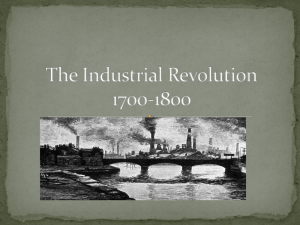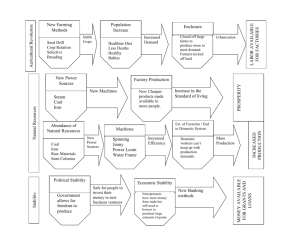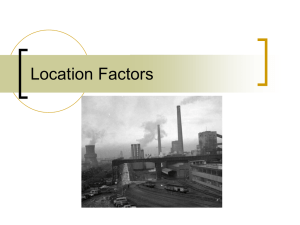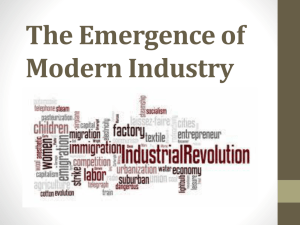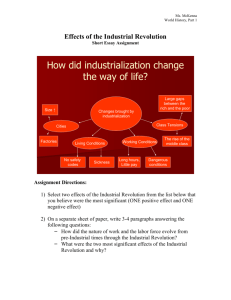The Industrial Revolution Begins in England
advertisement
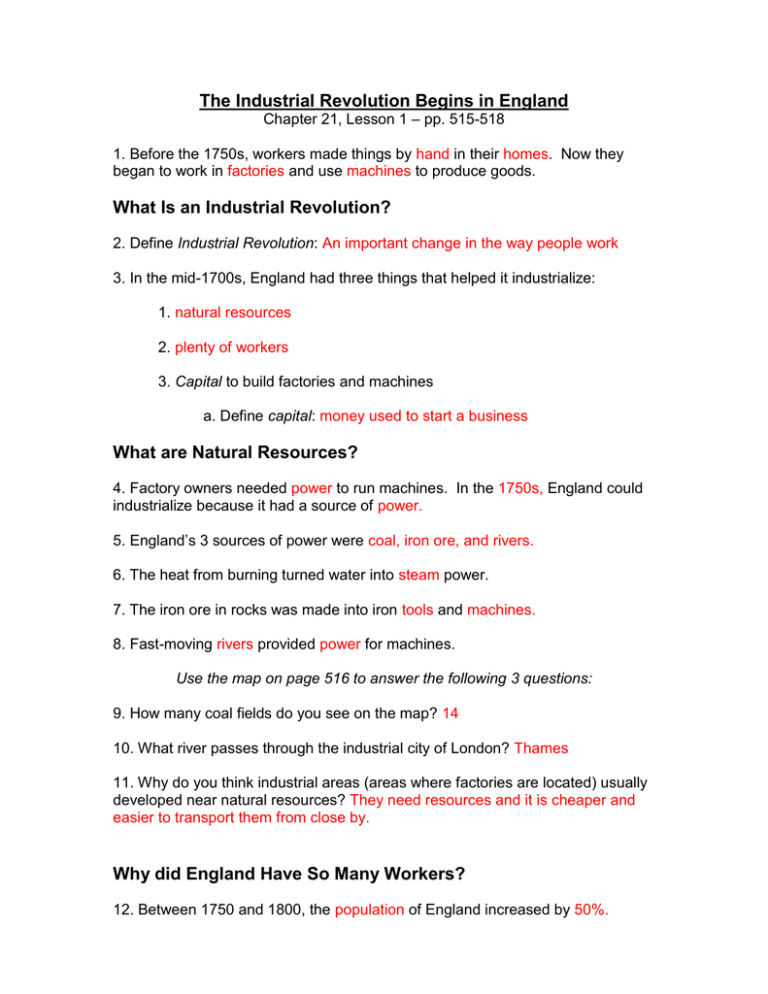
The Industrial Revolution Begins in England Chapter 21, Lesson 1 – pp. 515-518 1. Before the 1750s, workers made things by hand in their homes. Now they began to work in factories and use machines to produce goods. What Is an Industrial Revolution? 2. Define Industrial Revolution: An important change in the way people work 3. In the mid-1700s, England had three things that helped it industrialize: 1. natural resources 2. plenty of workers 3. Capital to build factories and machines a. Define capital: money used to start a business What are Natural Resources? 4. Factory owners needed power to run machines. In the 1750s, England could industrialize because it had a source of power. 5. England’s 3 sources of power were coal, iron ore, and rivers. 6. The heat from burning turned water into steam power. 7. The iron ore in rocks was made into iron tools and machines. 8. Fast-moving rivers provided power for machines. Use the map on page 516 to answer the following 3 questions: 9. How many coal fields do you see on the map? 14 10. What river passes through the industrial city of London? Thames 11. Why do you think industrial areas (areas where factories are located) usually developed near natural resources? They need resources and it is cheaper and easier to transport them from close by. Why did England Have So Many Workers? 12. Between 1750 and 1800, the population of England increased by 50%. 13. Why did it increase so rapidly? Due to the potato 14. What effect did the law have that allowed rich landowners to fence in open fields? Farmers no longer had land to farm 15. Factory owners now had two work sources – an increased population and farmers who had no land to farm. What is capital used for? 16. Factory owners must buy and build factories and machines. Owners do this with capital. Did the Industrial Revolution Spread Beyond England? 17. By 1860, Germany was industrialized. By the 1870s, the United States became a powerful industrialized nation. 18. Define industrialization: Getting machines to do the work 19. Define economists: people who study money 20. Economists divide the people of the world into 2 groups. 1. Industrialized nations – have factories to produce goods 2. Developing nations – do not have an industrial economy 21. Nations need 3 things to industrialize 1. Capital to buy machines and start up factories 2. a source of power to make machines work 3. workers to run the machines

